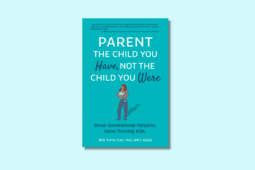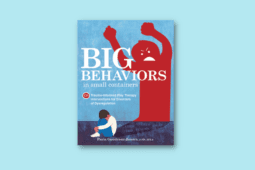
Clinical Practice & Guidance
Tips and techniques from your colleaguesRethinking Codependence
An Attachment-Based Framework for CaregiversDoes codependency pathologize our natural willingness to help those we love? Read more
What Do Therapists Know?
Learning and Growing Alongside Our ClientsAs therapists, we get to explore the mysteries of being human for a living—and to apply what we learn to our own lives. How amazing is that? Read more
Practice Tools: November/December 2023
The best from across the field of psychotherapy . . . on us!This month’s selection is from Alexandra Solomon’s, Love Every Day: 365 Relationship Self-Awareness Practices to Help Your Relationship Heal, Grow and... Read more
Trauma Bonding: 5 Attachment Wounds at the Heart of Toxic Relationships
A Conversation with Laura CopleyWatch Laura Copley, PhD, LPC, author of the brand-new book Loving You is Hurting Me, to learn how to spot a “trauma bond” in your clients and five ways to... Read more
One Foot In, One Foot Out
Enhance Clinical Effectiveness and Protect Against Compassion FatigueI've learned to not drown in my clients’ sorrow or hopelessness, but rather help them connect with their strengths and options to get the most out of our... Read more
FREE Boundaries Worksheets
Tools to Help Clients Develop Healthy BoundariesDownload free worksheets from Nedra Glover Tawwab’s "Boundaries Flip Chart: A Psychological Tool to Help Clients Set Healthy Limits, Develop Fulfilling... Read more
The Problem With ODD
How Neuroscience Shifts the ConversationBy obscuring the truth about kids’ adaptive responses to stress, the ODD diagnosis interferes with genuine solutions and effective treatment. Read more
The Pursuer–Withdrawer Sexual Dynamic
Addressing the Three Threads of AttachmentWhat if we viewed differences in how much two partners want sex as an attachment issue, not one of desire? Read more
Seeking the Autism Diagnosis
The Current Quest for Identity and CommunityIncreasing numbers of young people are wanting the validation of an autism diagnosis, even when assessments reveal they don’t meet the criteria. Read more
The PACE Attitude
A Guide for ParentsThe PACE attitude is a way of interacting with your child, especially around difficult topics or situations, that will help them feel less defensive and more... Read more
Nonviolent Communication for Self-Care
Facing Our Judgments and Unmet NeedsIs there a way to engage in self-care while in conversation with someone or in session? Learn more about nonviolent communication, a mindful approach to... Read more
When Teens Talk About Suicide
A DBT Approach for Critical MomentsThe rise in teen suicidality is frightening, but hospitalization isn’t the only—or even the best—option for treatment. Read more
Trans Kids Under Fire
Exploring the State of Gender-Affirming CareWhen politicians decide what gender-affirming care should look like, what happens to the mental health of our trans, nonbinary, and gender fluid youth? Read more
Hypnosis Revisited
Harnessing Therapy’s Most Versatile ToolClinical hypnosis has a rich history, broad applications, and sound research behind it—so why aren’t more therapists using it? Read more
Boys' Friendships
The Clash of Intimacy and MasculinityAre we undermining boys' longing for soft, loving friendships? Read more
Practice Tools: July/August 2023
The best from across the field of psychotherapy . . . on us!This month’s selection is from Bree Turns-Coe’s "Parent the Child You Have, Not the Child You Were: Breaking Generational Patterns, Raise Thriving Kids." Read more
Therapist, Your Pain Matters Too
Battling Burnout with BoundariesWhen mental health professionals compare their problems to that of their clients, they risk falling into the trappings of comparative suffering and missing the... Read more
Exploring Consensual Nonmonogamy
How to Help Couples Avoid Pitfalls and Enhance Their ConnectionDespite a cultural environment that’s often hostile toward nonmonogamy, an increasing number of couples are considering it. How can therapists help them... Read more
Weighing Your Clients’ Needs Against Your Own
The Ethics of Handling Your Personal CrisisWhat are the ethics of carrying on with your regular practice when dealing with an ongoing personal crisis or medical emergency? Read more
When One Partner Is Kinky...
Cracking Open the ConversationHaving an erotic craving that seems shocking to a partner doesn’t have to be a death knell for a relationship. Read more
Rewriting Marriage Contracts
Fresh Options for Ambivalent CouplesThe choice for ambivalent couples is no longer binary: separate or stay together. Instead, therapists can help them craft formal yet flexible agreements... Read more
Honoring the Choice to Be Single
Have We Gotten Past Our Relationship Biases?More people are remaining single these days—and they're not unhappy about it, biding time between partners, or in need of fixing. Read more
Practice Tools: May/June 2023
The best from across the field of psychotherapy . . . on us!Practice Tools for the May/June 2023 issue are courtesy of Arielle Schwartz's book, "Therapeutic Yoga for Trauma Recovery." Read more
Healing the Invisible Wounds of Racial Trauma in Therapy
A Conversation with Kenneth V. HardyNetworker discusses racially-sensitive, trauma-informed interventions and strategies with Dr. Kenneth V. Hardy. Read more
Covert Narcissism Unmasked
What Are We Really Treating?A covert narcissist’s eagerness to share their suffering can make them feel like ideal clients. And that’s what’s so vexing for clinicians. Read more
Strengthening Empathy in Kids
The Delicate Balance Between Self and OthersIn a world that seems to reward narcissists, how can we help parents raise kind, empathetic kids with a healthy, balanced sense of self? Read more
Are You A Conflict-Avoidant Therapist?
Harnessing Antagonism in the Therapy RoomFollow these tips to harness your reactions to antagonistic clients in direct, clinically useful ways. Read more
Behind the Pursuer–Distancer Dynamic
Encouraging Men to Face Their Hidden FearsHow to help men face the hidden fears that keep them stuck in unhealthy relationship patterns. Read more
Are We Treating Binge Eating All Wrong?
Removing the Shame and Building Self-TrustBinge-eating disorder is the most common eating disorder, but it’s also the most underdiagnosed and misunderstood. Read more
Practice Tools: March/April 2023
The best from across the field of psychotherapy . . . on us!Practice Tools for the March/April 2023 issue are courtesy of Paris Goodyear-Brown’s new book, "Big Behaviors in Small Containers." Read more






























